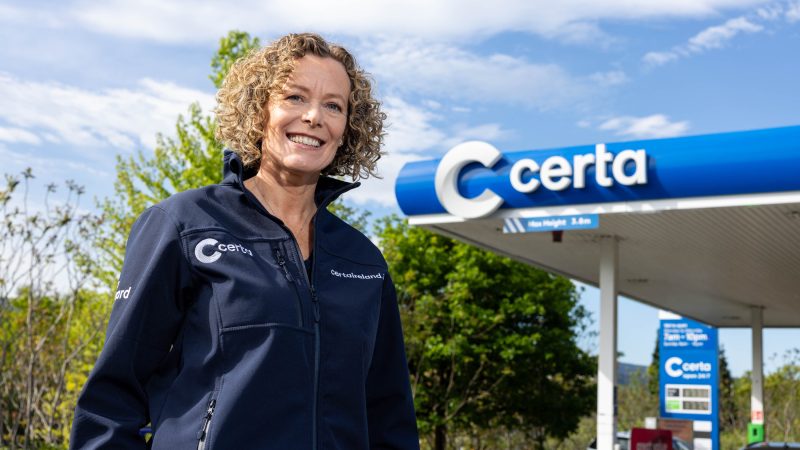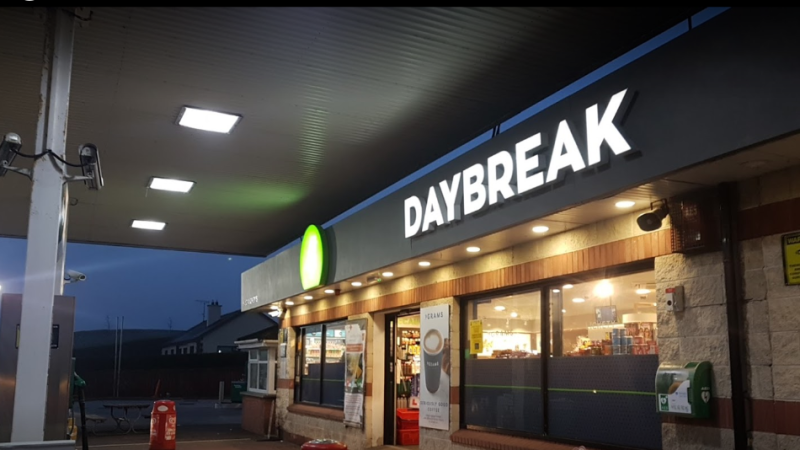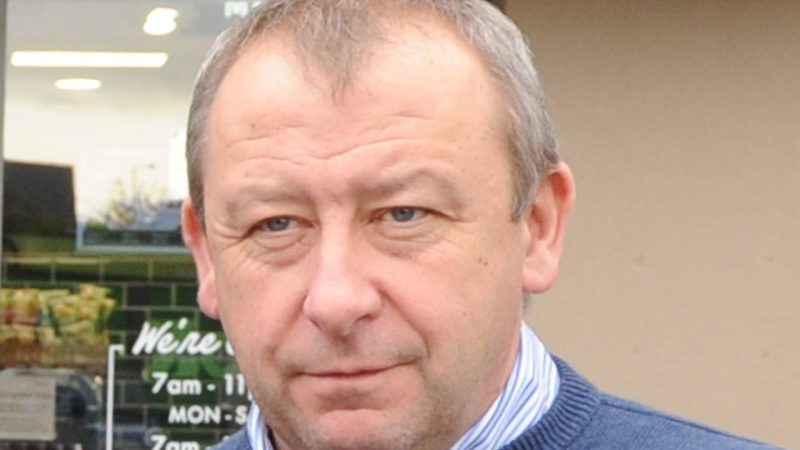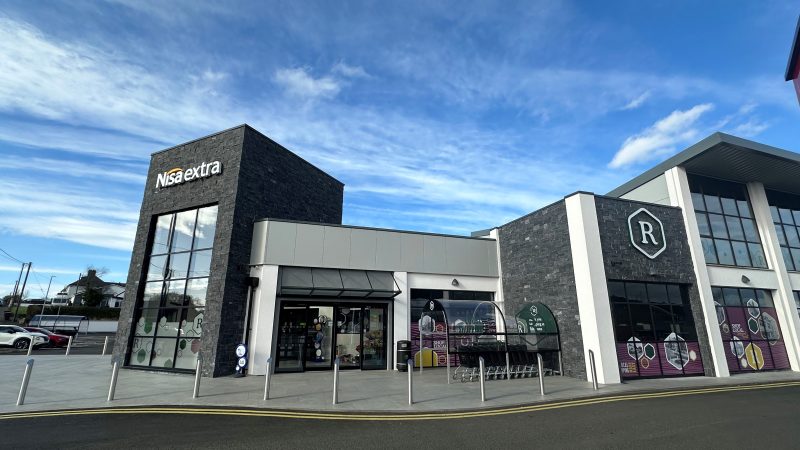Supporting petrol retailers in 2018
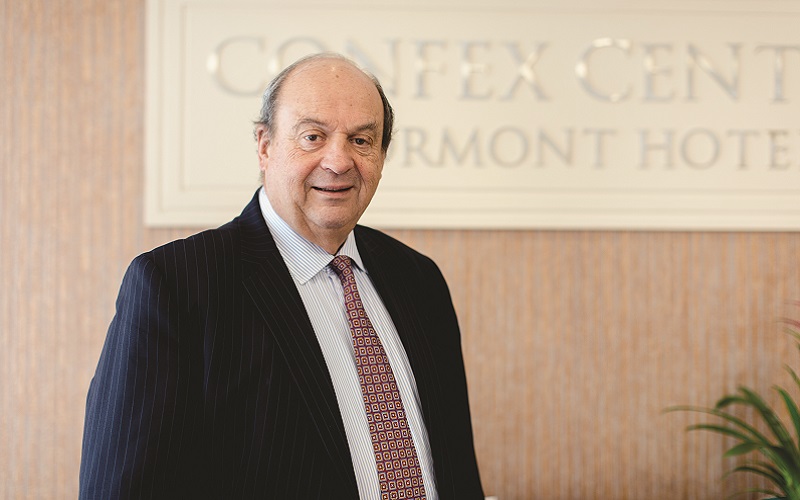
Chairman of the Petrol Retailers Association talks the price of crude oil and what retailers can be doing to prepare for government legislation on electric vehicles.
After a relatively stable year for the petrol industry, 2017 ended in a flurry of headlines announcing a three year high for petrol prices in the UK. Average figures for the nation showed that motorists were paying 121.11p for petrol and 123.46p for diesel, the highest figures since December 2014. Chairman of the Petrol Retailers Association, Brian Madderson attributes this unprecedented spike to a “growing political uncertainty surrounding a number of oil producing countries.”
In November of 2017, Donald Trump proposed an embargo on Iran which threatened to jeopardise the 2015 nuclear agreement. At the time of going to print Trump has waived these sanctions against the Middle East oil giant, but has warned that changes must be made before the next sanctions waiver due to take place May 12, 2018.
“A large percentage of oil producing countries are currently experiencing some kind of disruption. We are hearing about civil unrest in Iranian cities, Iraq is still having concerns over access to Kurdish oil fields and Venezuela is so financially oppressed – all of which is affecting investment,” said Brian.
Another driving factor behind the increase in fuel prices is imposed production cuts made by the Organisation of the Petrol Exporting Countries (OPEC) in a bid to reduce global stockpiles. After a successful first year of cuts in 2017, the organisation and its allies announced an extension of decreased production expected to last well into 2018.
“Political unrest and the OPEC agreement have both had a significant impact on the price of crude oil,” said Brian. “We should expect to see Brent crude oil rise to over 65 dollars per barrel for the first half of the new year, and remain fairly stable plus or minus 5 dollars throughout the year.”
Despite the negative impacts of rising fuel prices across the board, citizens of Northern Ireland have enjoyed the lowest regional pump prices in the UK.
Brian said: “NI is a very competitive market place, with more filling stations per head of capita than any other region in the UK. This not only drives petrol and diesel prices down, but also raises the standard of offering in NI forecourts, providing good consistency across the province.”
Electric charging points
In addition to ending 2017 with higher fuel prices, the UK government also made some key announcements in the 2017 Autumn Budget that will affect the petrol industry. One of the most noteworthy revelations being the proposed ban on the sale of all new petrol and diesel cars by 2040, in a bid to reduce air pollution. However, Brian’s meetings with senior figures at the Department for Transport has confirmed that HYBRID vehicles will be permitted after this date.
“It is an unsettling time for petrol retailers who are now looking to see if they have space for an electric charging point on their forecourts. The PRA will be able to provide advice and assist its members by introducing them to companies who provide electric vehicle charging points.”
The PRA is hoping to bring a selection of charging point providers to their Belfast Roadshow taking place October 17, 2018 for those starting to conduct their own research into the costs, advantages, and pitfalls of adding an electric charging point to their site.
As part of the incentive for motorists to switch to zero emissions-capable vehicles, the Chancellor, Philip Hammond unveiled a £400m charging investment infrastructure fund. Brian believes this is an encouraging step for petrol retailers provided they are included in the list of businesses eligible to receive a grant.
“It is essential that a substantial portion of the fund is ring-fenced for fuel retailers, in order to make this equipment affordable.
“However, in discussions with the Office for Low Emissions Vehicles (OLEV), it became clear that only 50 per cent of the funds will be provided by government monies. The other 50 per cent will be matched by various financial funds, of which they weren’t able to give me details at this time, or how the funding would be allocated.
“There seems to be lots of positive talk, but no real hard facts on how retailers will be able to access funding for electric charging points. This is something the PRA will be pressing with the Department of Transport over the coming year.”
Cleaner fuel across Ireland
On a more optimistic note, Brian spoke about a considerable improvement in fuel laundering across the island of Ireland, citing that better use of chemicals in petrol and diesel has made it increasingly difficult for criminal gangs to launder fuel.
Praising Puma Energy, he said: “The terrific new owners of Belfast Fuel Terminal, Puma Energy have invested £2m in an ethanol blending plant bringing NI in line with the rest of the UK which offers petrol with 5% ethanol.”
Another major issue the PRA has been tackling with success in 2017 is the rise in rogue car washes. Set up unopposed over recent years, illegal operations have made huge inroads to the income of retailers who possess properly regulated jet and rollover carwashes.
“These unofficial businesses are often run by criminal elements and pay little to no tax while flouting environmental legislation. Not only that, there have been many cases that have been involved in slave labour and human trafficking. I have already been working closely with Ian Paisley in Northern Ireland and there will be lots revealed on the matter in 2018.”
Brian added that car washes provide another income stream for retailers, and these cleaning services will provide a useful source of extra forecourt revenue even when we go forward to hybrid and electric vehicles. It is an important issue to resolve now in order to evolve the forecourt concept to be profitable in the future. Refilling the car with petrol is something of a distress purchase, but retailers need to draw customers in with other incentives.
“There are very good examples of modern forecourts in Northern Ireland including Creightons of Balmoral and Applegreen M1 Southbound, Lisburn,” said Brian. “Both forecourts are multi-tasking facilities that demonstrate all the traits needed for a modern, friendly, clean forecourt with food-to-go.”
Neighbourhood Retailer is keen to find out what 2018 holds for the PRA “Going forward into 2018, the PRA hopes to build on the successes of 2017, and continue to support our members to inspire innovation in the coming year, regardless of crude oil prices and changes in legislation,” said Brian.
The PRA’s next meeting takes place in Belfast’s Stormont Hotel on Thursday March 22. To attend, contact them through their website at www.ukpra.co.uk



